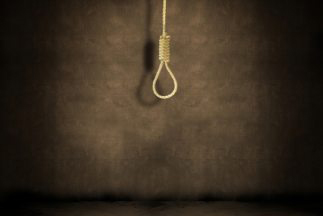The ICJ urgently calls on the Pakistani Government to halt the imminent execution of Shoaib Sarwar, scheduled to take place on 18 September 2014.
In 1998, a sessions court found Shoaib Sarwar guilty of murdering Awais Nawaz. In 2003, the Lahore High Court rejected his appeal, and in 2006, the Supreme Court confirmed the death sentence.
The President of Pakistan also rejected Shoaib Sarwar’s mercy petition seeking to have the execution commuted.
“Pakistan has had an unofficial moratorium on the death penalty since June 2008, with only the exception of Muhammad Hussain’s execution in November 2012 following a court martial,” said Sam Zarifi, ICJ’s Regional Director for Asia and the Pacific. “Breaking its moratorium on the death penalty will be a major step backwards for Pakistan, calling into question the commitment of Prime Minister Nawaz Sharif’s Government’s to its human rights obligations”.
The resumption of the death penalty puts Pakistan in opposition to the global and regional movement towards the abolition of the death penalty.
Currently, 150 countries worldwide, including 30 states in the Asia-Pacific region including Nepal and Sri Lanka, have abolished the death penalty in law or in practice.
“Resuming executions is all the more alarming given that over 8,000 people are currently on death row in Pakistan,” added Zarifi. “With the death penalty prescribed for 27 offences, including blasphemy, arms smuggling and offences related to drugs, these numbers are increasing by the day.”
The ICJ opposes capital punishment in all cases without exception. The death penalty constitutes a violation of the right to life and the right not to be subjected to cruel, inhuman or degrading punishment.
In 2007, the UN General Assembly adopted a resolution emphasizing that “that the use of the death penalty undermines human dignity” and calling for the establishment of a moratorium on the use of the death penalty “with a view to abolishing the death penalty”.
The resolution was reaffirmed in 2008, 2010, and most recently in December 2012, when an overwhelming majority of 110 UN Member States voted in favor of a worldwide moratorium on executions as a step towards abolition of the death penalty.
The ICJ urges the Pakistani Government to respect UN General Assembly resolutions and immediately halt Shoaib Sarwar’s impending execution.
In addition, the ICJ calls on the Government to instate an official moratorium on the death penalty, with a view to abolishing the death penalty in law and in practice and to acceding to the Second Optional Protocol to the International Covenant on Civil and Political Rights on the abolition of capital punishment.
Contact:
Sam Zarifi, ICJ Asia Pacific Regional Director (Bangkok), t: +66 807819002; email: sam.zarifi(a)icj.org
Reema Omer, ICJ International Legal Advisor for Pakistan (Lahore), t: +923214968434; email: reema.omer(a)icj.org




